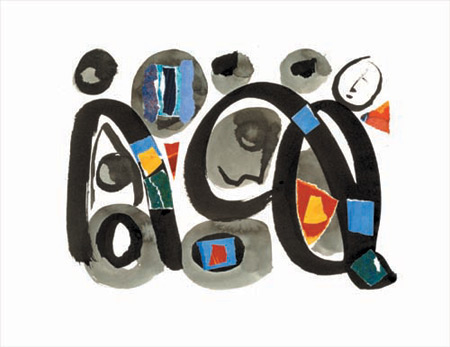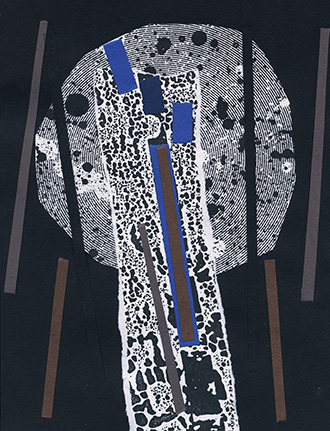
This blog entry was primarily written for creative GenZers and Millennials who are hoping to establish careers in art, design, and communications in scary times.
This audience includes people between the ages of 17 to 35 and their parents or partners. But the content of the blog might also resonate for mid-career creative professionals and other knowledge-based white collar workers.
I am a 70-year-old white male and diabetic. This puts me in the “high risk” category for succumbing to COVID-19. This is most definitely a distinction rather than an honor. But it is not the first time that I have had to cope with the imminent prospect of death, chronic pain, and disability. So this makes me something of a cautious optimist by both circumstance and temperament.
https://www.creativeshare.com/bio.php
My art and video work has dealt with Post-Holocaust themes for over 30 years. Their leitmotif is the primacy of human resilience and creativity amid unimaginable death, destruction, and disruption.
https://artnothate.com/index.php
The horrors of World War II, the Holocaust, and Nazi fascism can give us both a wider historical perspective and concrete reasons to hope for a considerably better future.
In the six years between 1939 and 1945 there were a minimum of 55 million military and civilian deaths, and at least 20 million deaths from war-related starvation and famine. Germany, Russia, and Japan lay in ruins after the conflict. There were at least 9 million displaced persons and refugees in Western Europe alone after WWII.
According to Google articles, at this moment, there just under 2 million people infected worldwide with COVID-19 and about 123,000 reported deaths.
Yet most of the developed world still has electricity, potable water for drinking and sanitary purposes, adequate food, functioning municipal government, uninterrupted phone and internet services, functioning pharmacies and emergency medical services, and daily mail and package deliveries.

Any discussion of possible future scenarios requires some reasonable current assumptions. Here are mine for you to consider:
- It is most likely the pandemic will end with a whimper rather than a bang in about a year. No one knows exactly what the economy or political situation will be. But, as always, there will be winners and losers. For those who provided essential online services, their careers will probably continue to flourish. The healthcare industry most likely will continue to struggle long past the pandemic.
- Most educated young Americans will have a life expectancy of at least 80 years (possibly a lot longer). And advances in medical science will allow you to function at a very high level of both mental and physical agility well into your 70s and beyond.
- AI (artificial intelligence), VR (virtual reality), PA (predictable analytics), and 3D printing will permeate all the creative fields. It will demand that most “creative types” have a basic grasp of computer science, statistics, and economics, as well as the basics of their current creative domain.
- You will probably change jobs and spouses/partners multiple times over your lifetime and have few if any children. So life will always tend to be in flux and self-involved (because of small extended family and few real non-digital friends).
- There will be some form of universal basic income, universal healthcare, and universal access to lifelong learning in all technologically advanced countries. But this will not likely happen in the U.S. for another 25 years (until most of the Baby Boom generation has died off).
- The threats posed by climate change, nuclear war, biological war, cyber war, internet collapse, species extinction, pollution of air and oceans, pandemics, global economic inequality, and societal Future Shock will still challenge humanity in the future, much as it does today. This Pandora’s box of problems will cause pervasive pandemics of psychological depression and anxiety disorders in a digitally connected world.
Below are two thought-provoking quotes worth considering as you begin to both plan for your uncertain future endeavors and negotiate a precarious present.
The first is from a futurist and polymath named Peter Russell:
Unexpressed grief is often sublimated into anger and blame. It is easy to get angry at the corporations, the politicians, the wealthy, the Church, the military, the terrorists, or anyone else we think is to blame for our predicament. They may to be blame for particular situations that have arisen, but ultimately there is no one to blame for the overall unraveling.
It is the inevitable exponential development, with all its consequences, that has brought us to this point. We’d have ended up in a similar situation whatever path we took.
Will we be able to move beyond fear, denial, anger and blame to allow in our grieving and through that move on to acceptance, facing an unknown future with courage and an open heart?
Will we be able to let go of our attachment to how things should be, our hope that things will turn out well in the end, and accept that this is the way it is for a technologically empowered intelligence spinning ever-faster into the eye of its evolutionary hurricane?
The final thoughts were written by the bongo-drum playing, Nobel-prize-winning physicist Richard Feynman:
Fall in love with some activity, and do it! Nobody ever figures out what life is all about, and it doesn’t matter.
Explore the world.
Nearly everything is really interesting if you go into it deeply enough. Work as hard and as much as you want to on the things you like to do the best.
Don’t think about what you want to be, but what you want to do. Keep up some kind of a minimum with other things so that society doesn’t stop you from doing anything at all.

